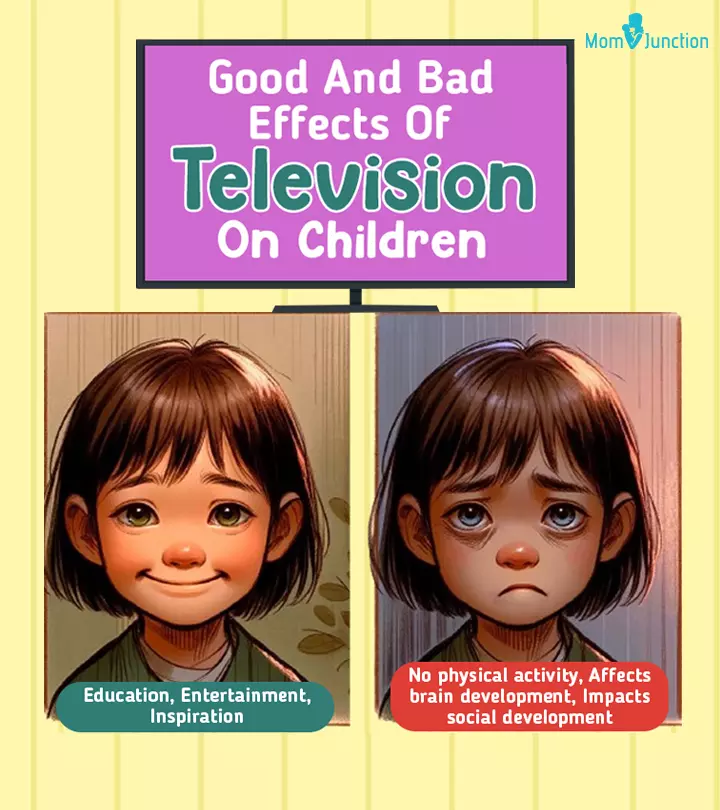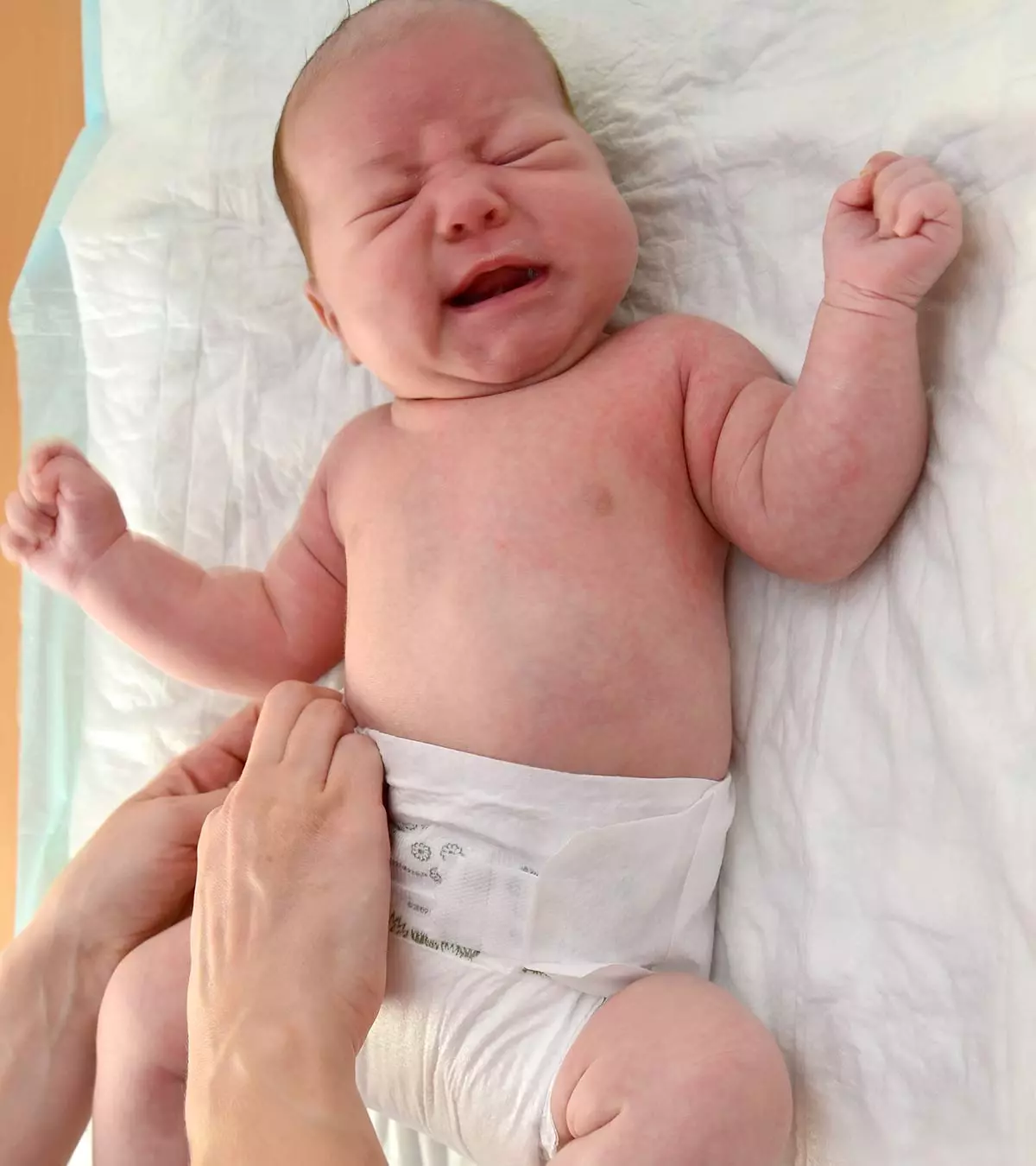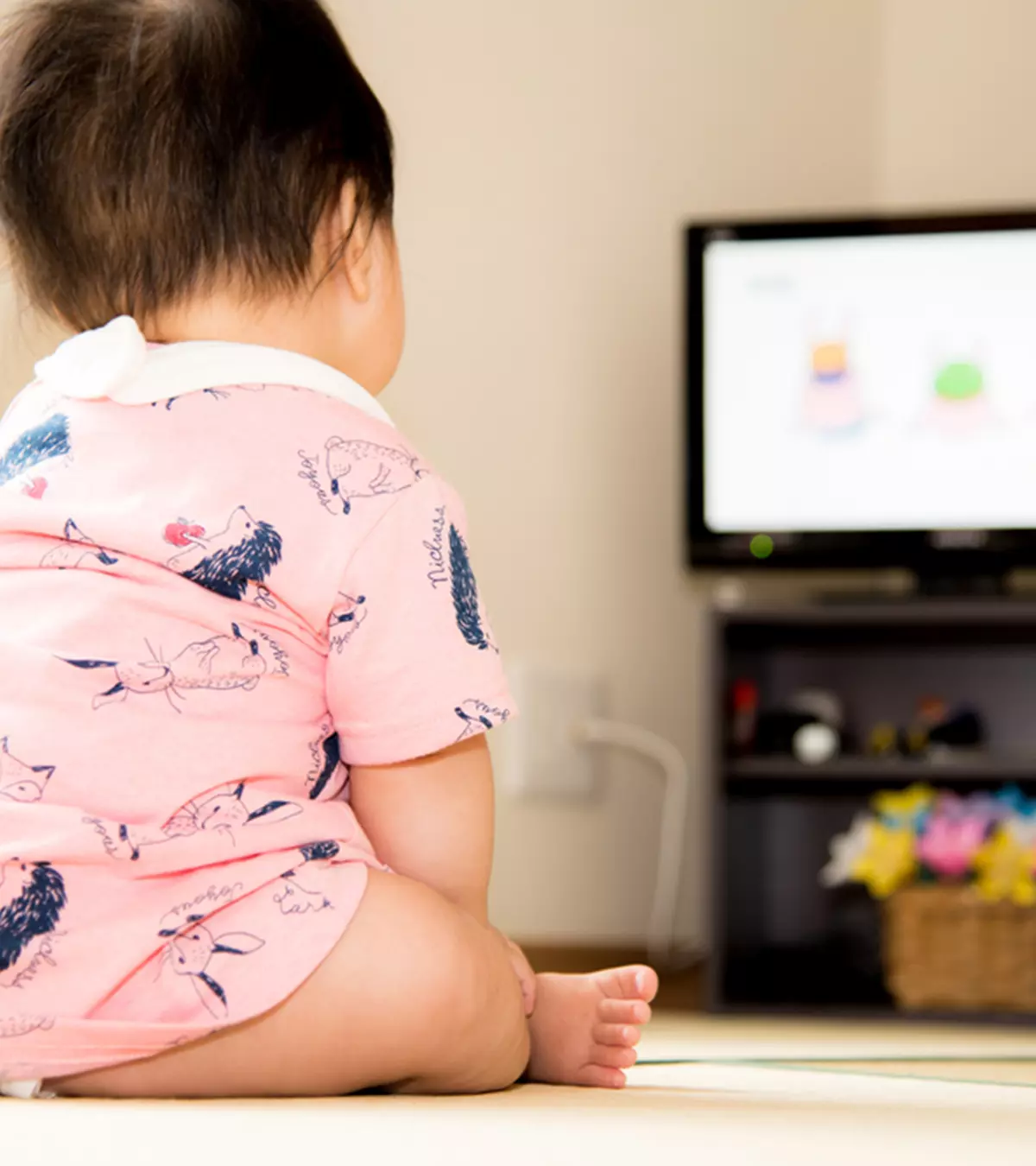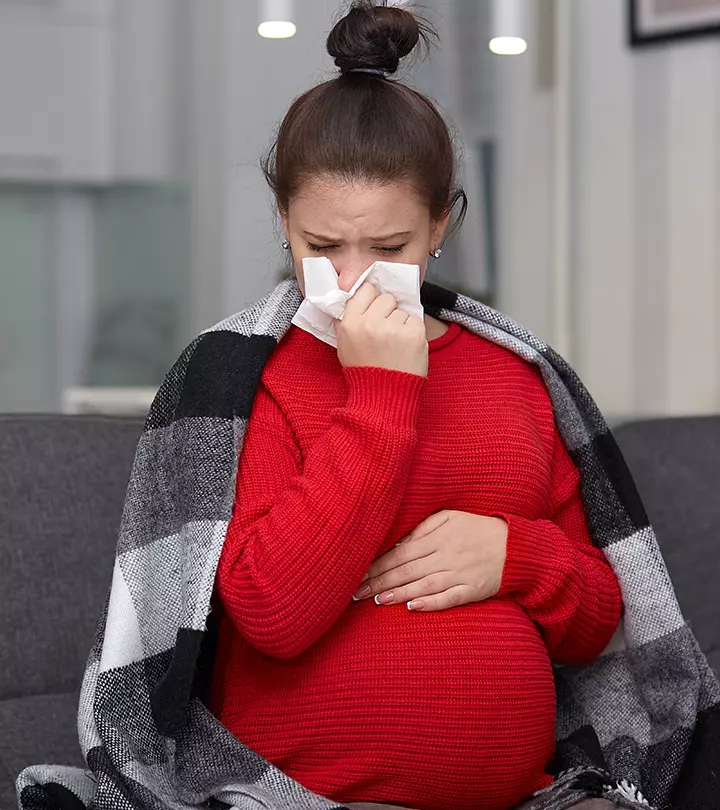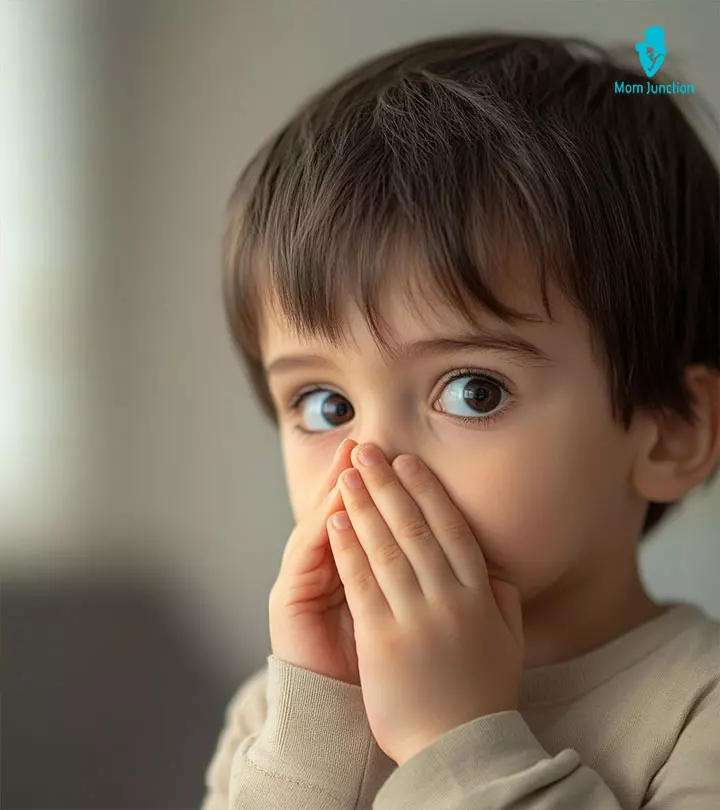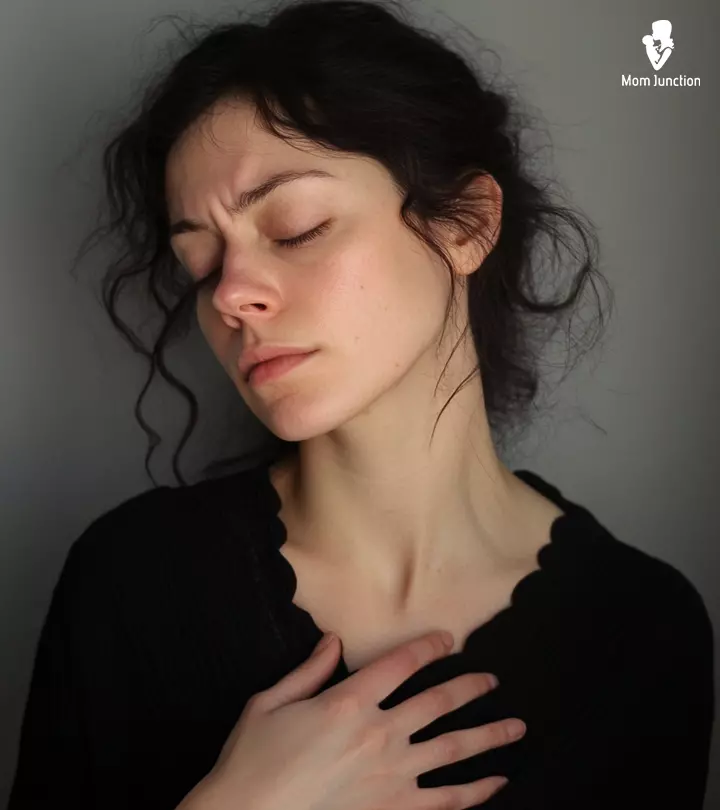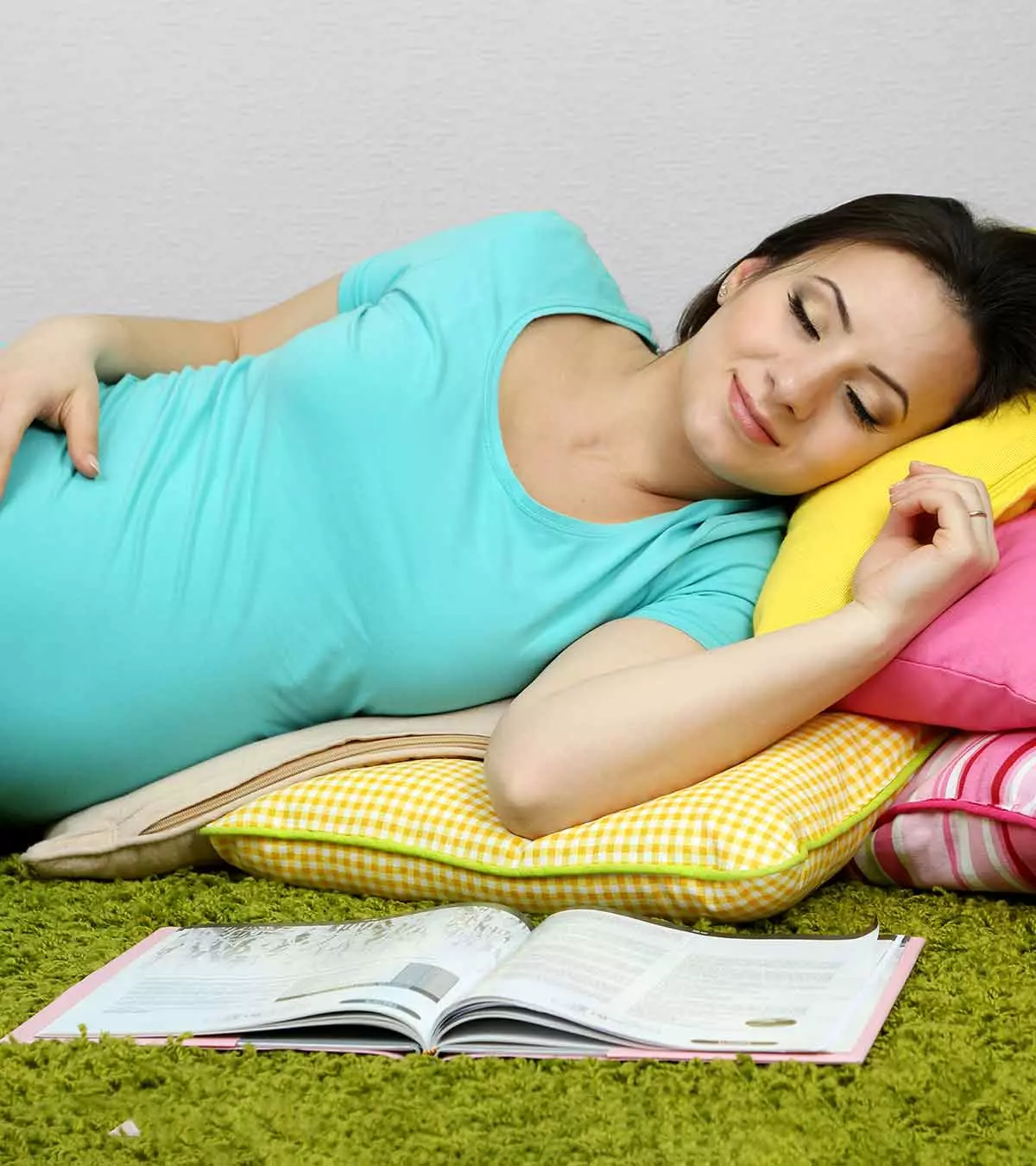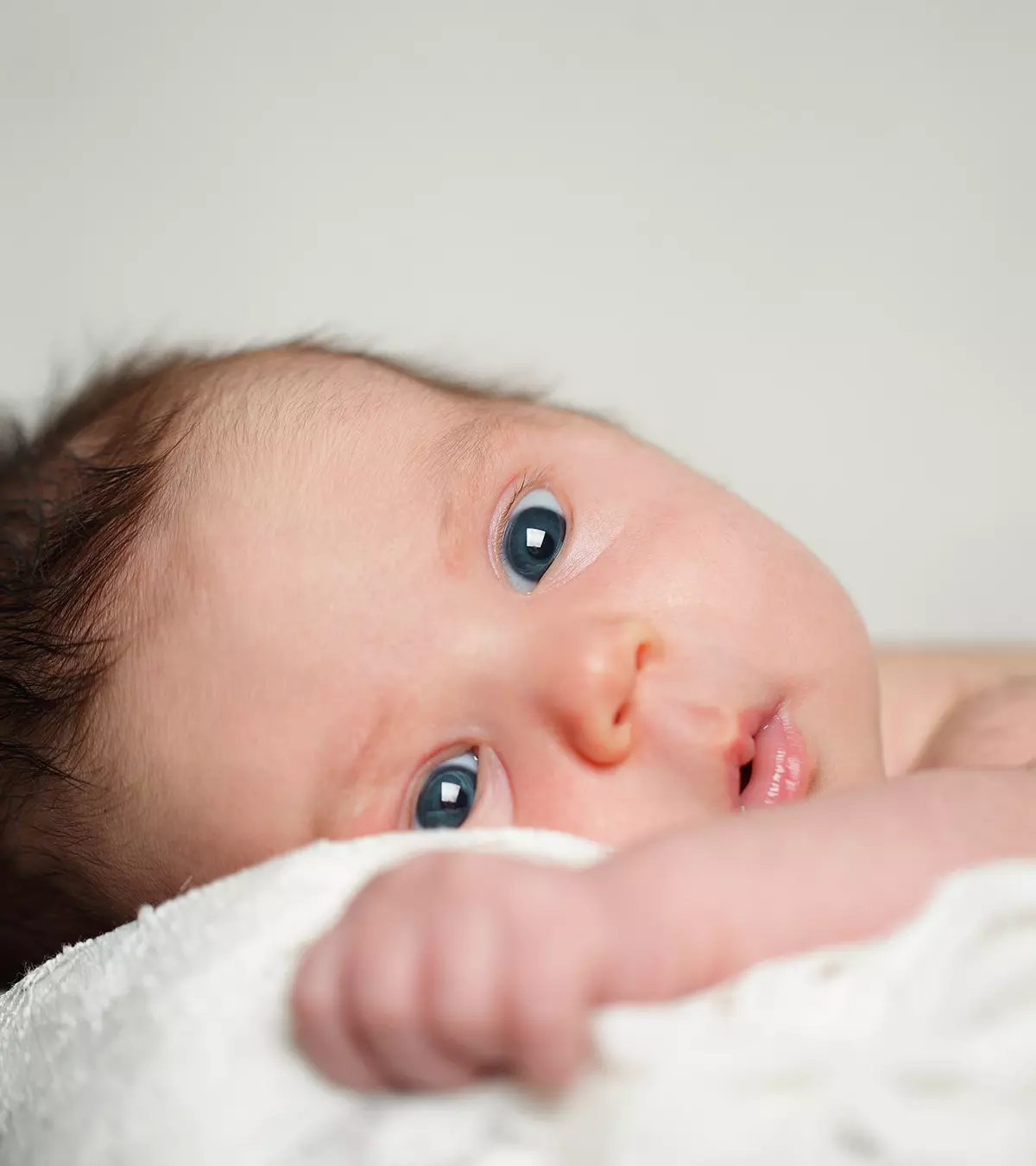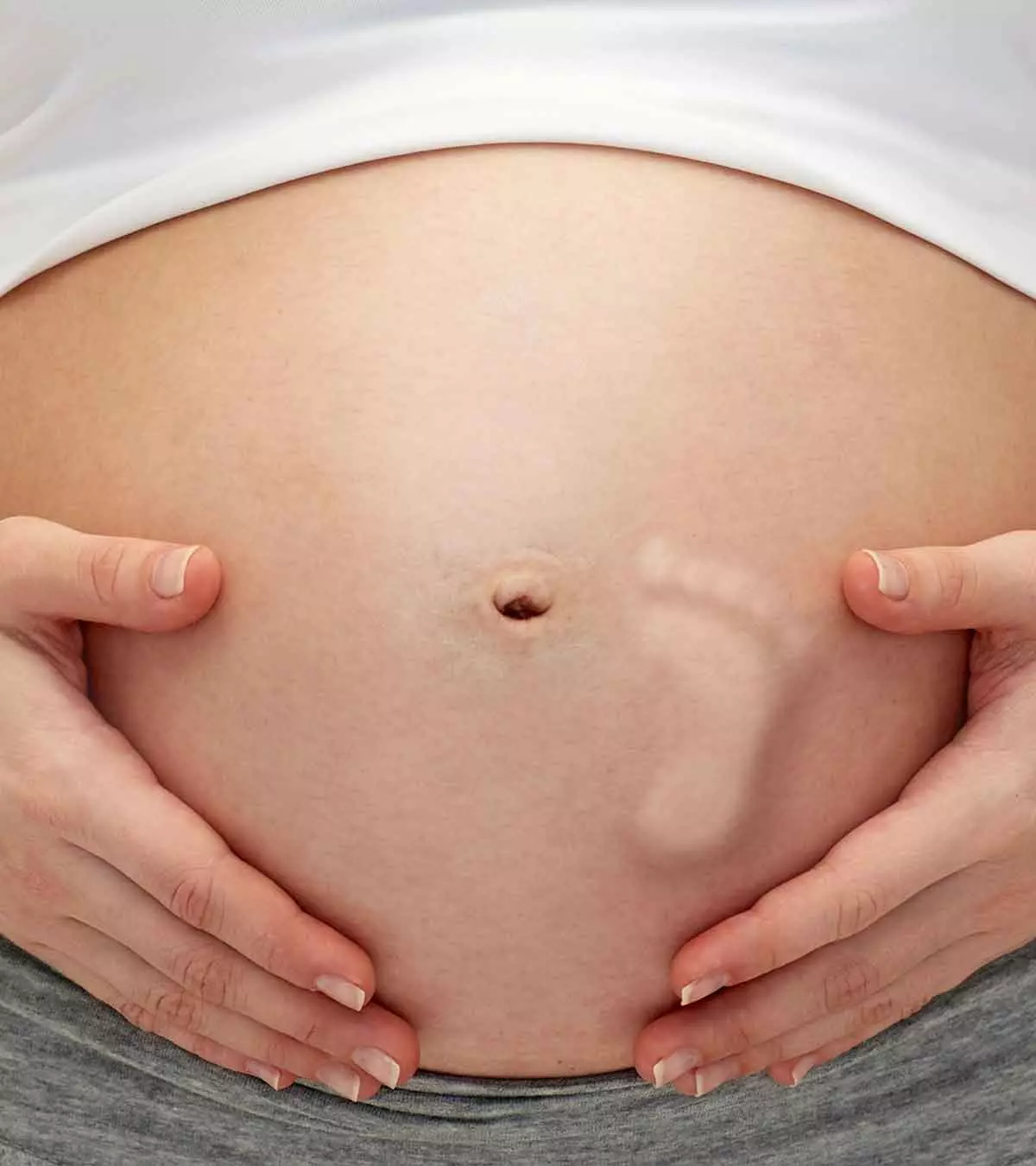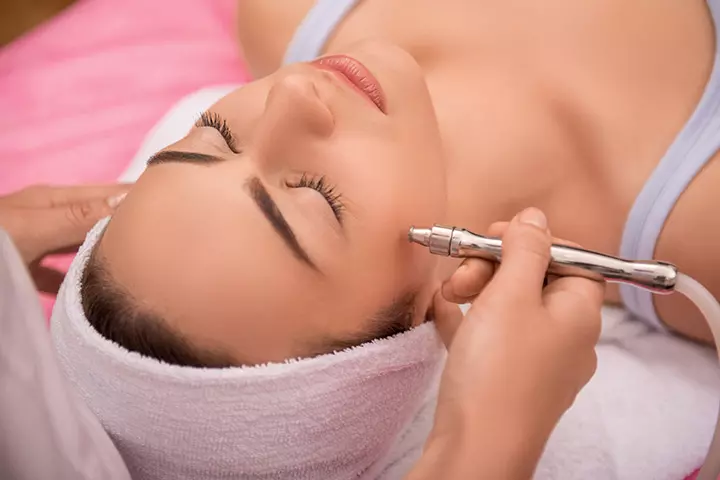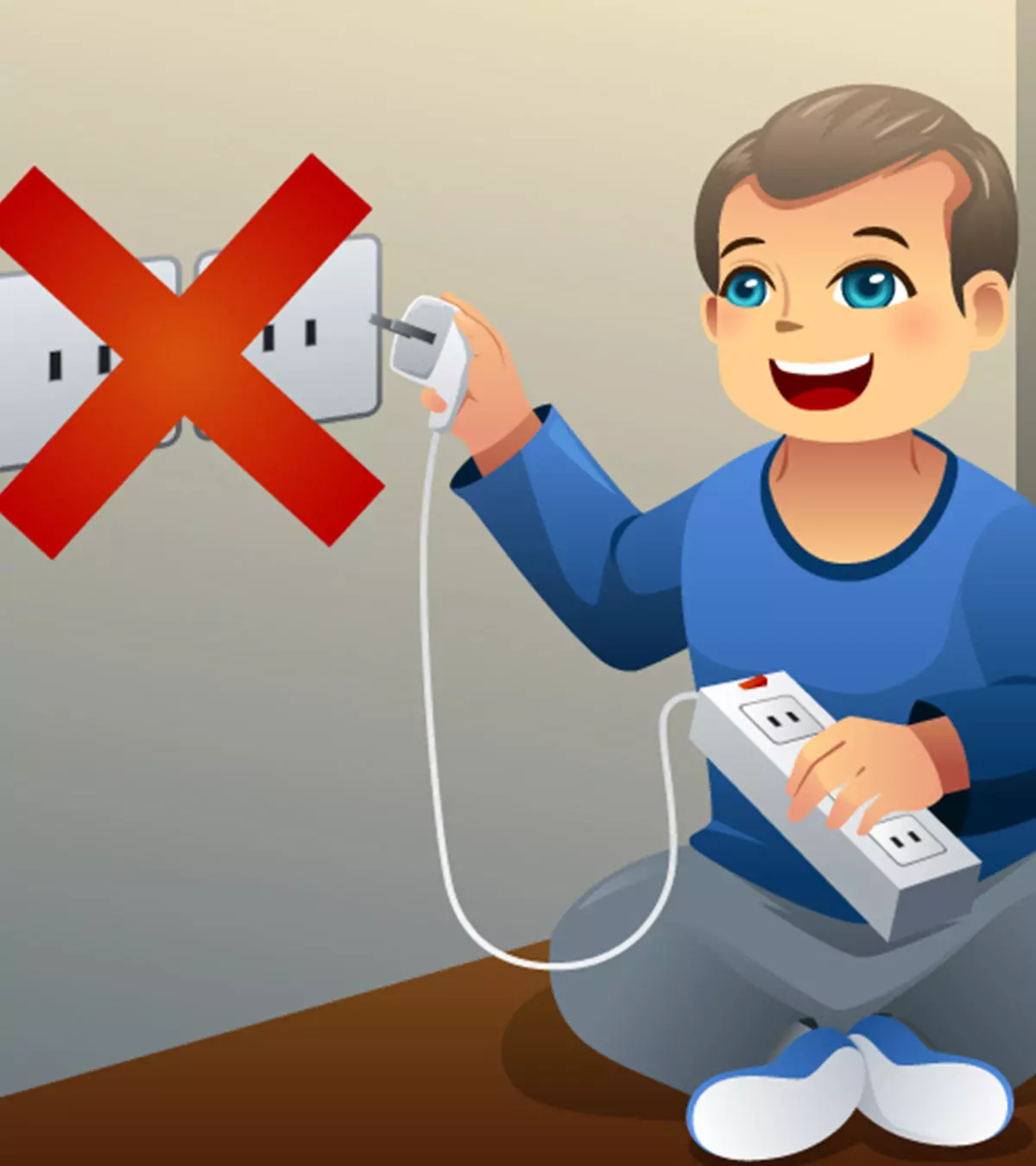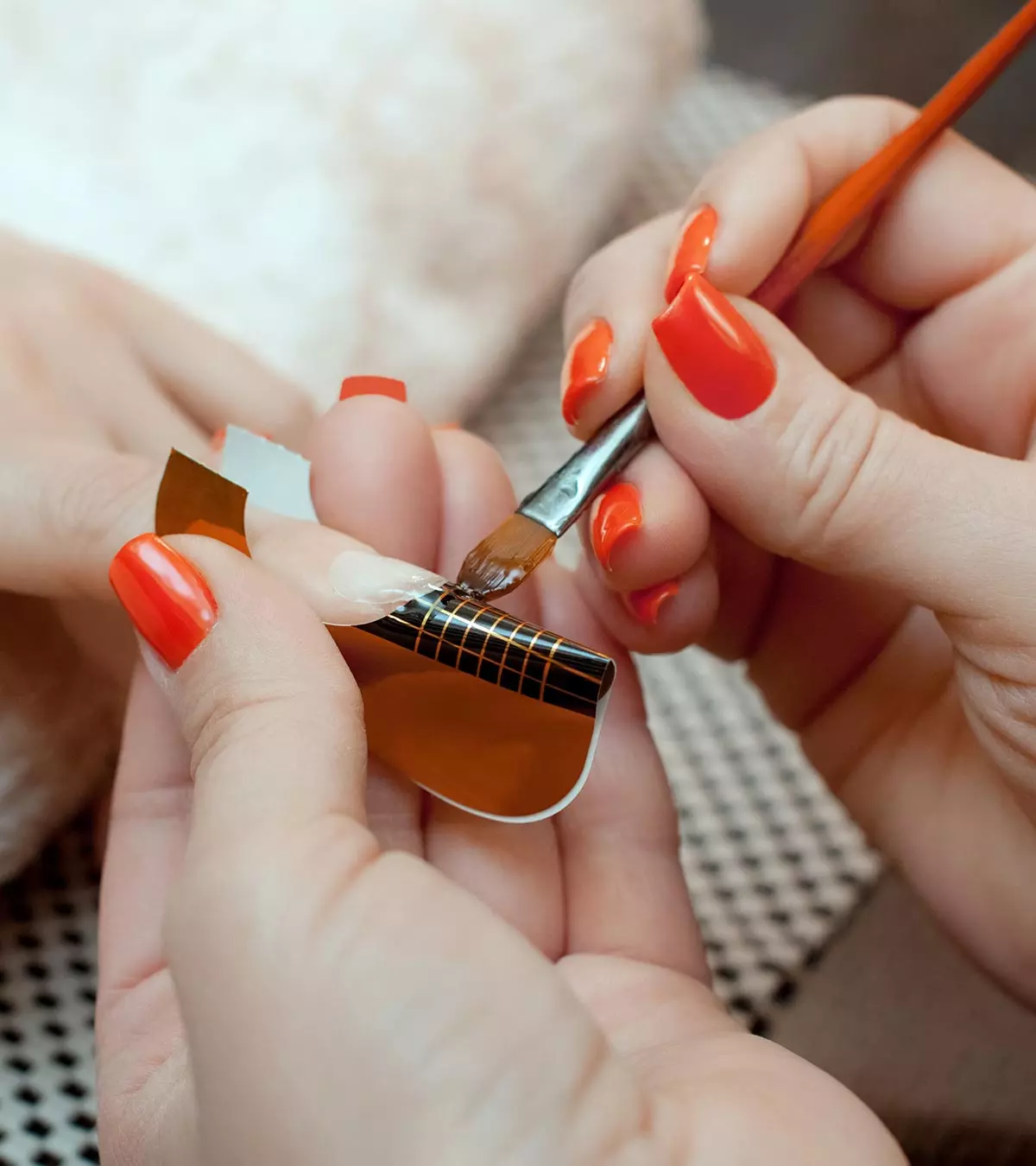
Image: Shutterstock
Acrylic nails or faux nails are false extensions to the nails. These nails are made from acrylic and other compounds and are stuck over natural nails. These nail accessories last for a long time and make the nails look attractive. But, can you get acrylic nails when pregnant? After conception, you may not be sure if it is alright to expose yourself to toxic chemicals and compounds while wearing acrylic nails.
In this post, we tell you if acrylic nails are safe during pregnancy, their possible side effects, safety measures, and proper nail protection methods you may take.
Key Pointers
- Pregnant women can use acrylic nails, but they should take safety measures to reduce chemical exposure.
- Ensure proper salon ventilation and wear a mask during the application of acrylic nails.
- Inform the manicurist about pregnancy to ensure the cautious use of products.
- Potential side effects of acrylic nails during pregnancy include natural nail damage, itchy or inflamed cuticles, pain, and weaker nails.
- Safety precautions include selecting a reputable salon, avoiding use on any cuts or wounds, and properly cleaning and sterilizing tools.
Can You Get Acrylic Nails During Pregnancy?
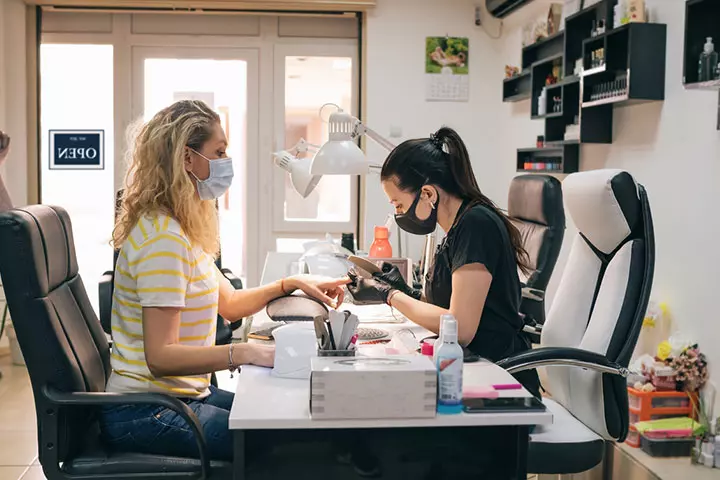
Image: IStock
You can get acrylic nails during pregnancy. Make sure the room is properly ventilated while you are getting them. Since salons may use strong chemicals, you might get exposed to solvent fumes that could make you nauseous. Therefore, you should check the salon’s ventilation before you get your nails or any other service done at a salon.
Sharing her experience of getting acrylic nails as a pregnant woman, Danielle Albano says, “The only thing that bothered me was the primer or whatever that is that they put on the nail bed before they put the acrylic and the glue bothered me a little bit. So I did get a little nauseous from the chemical which I know is bad you know but after that everything was fine (i).”
Also, you should let your manicurist know about your pregnancy so that they are cautious about the products they use.
More than the women who use the nails, the problem with chemicals exposure could be to those pregnant women who work in salons. Constant exposure could have an impact on the baby. Therefore, if you are working in a salon, you might want to take a break for prenatal care or ensure there is proper ventilation at your place of work. Also, use safety guards such as a mask and gloves to reduce the exposure as much as possible.
Doctors recommend women to wear a mask even while getting acrylic nails applied to help reduce their exposure to the fumes and chemicals in the air or the salon. If you feel yourself getting light-headed or feeling nauseous, immediately leave the salon and go outside (if possible) for some fresh air. If this occurs at all, it is best to limit or even avoid your trips to the salon as repeated exposure can be harmful to you and your baby.
What Could Be The Possible Side Effects Of Using Acrylic Nails During Pregnancy?
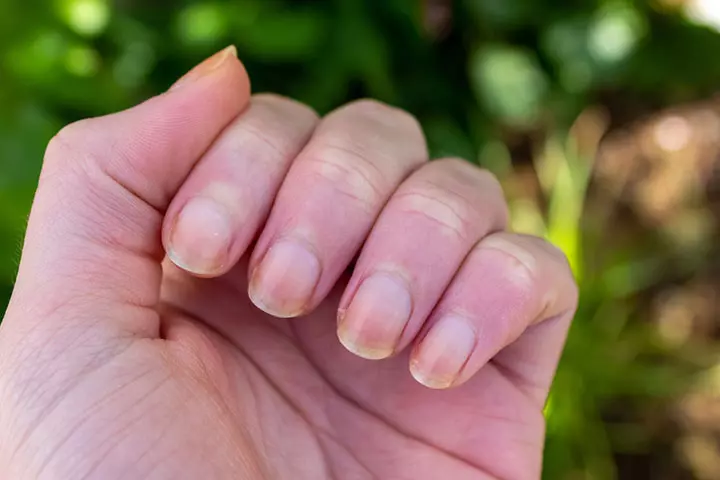
Image: Shutterstock
Acrylics are artificial nail enhancements placed on your original nails to increase their beauty. They are either painted with a color or covered with some powder or liquid. Although there is no evidence about their complications, there could be a few problems.
- They may damage your natural nail as it is hard for the nails to grow with acrylic on them. The damaged nails may become a breeding area for bacteria and nail fungus.
- They might develop itchy or inflamed cuticles if the tools used on them are coarse or worn out.
- They may cause pain or split the nail plate. Therefore, you should have acrylic nail art only if you have thick and healthy nails.
- Acrylics may weaken your nails if they are put improperly or not maintained (1).
 Point to consider
Point to considerTherefore, you should make sure your nails are healthy enough to have acrylic extensions, and also take some safety precautions.
Safety Precautions While Getting Acrylic Nails During Pregnancy
Following are some essential safety and self care measures you need to follow before you begin with the acrylic nail session (2) (3).
- Avoid using acrylic products like nail polish if you have any nail or skin diseases, cuts, scratches, or open wounds.
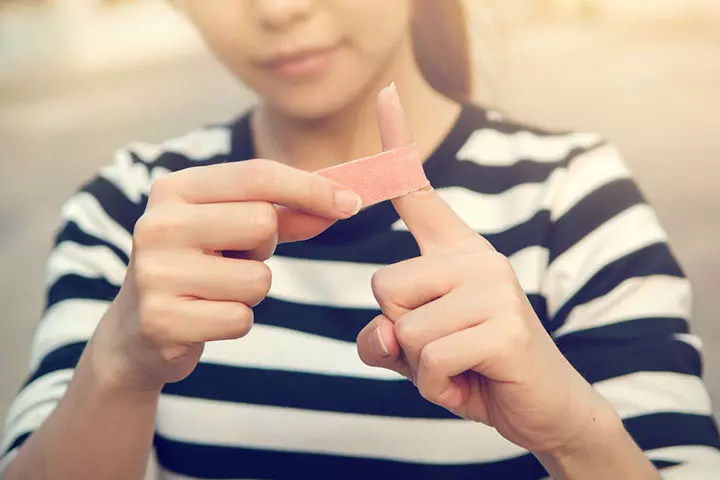
Image: Shutterstock
- Choose a good salon that uses safe and high-quality products.
- Check for the cleaning and sterilizing procedure of the tools at the salon.
- Make sure you get your nails done in a well-ventilated room to avoid breathing any dangerous fumes and toxins.
- Check the ingredients list carefully and opt for nail brands that are organic or free from harmful chemicals.
- Use the nails made of ethyl methacrylate polymers over methyl methacrylate monomer as the US FDA has recognized the former to be safer than the latter.
- Wear a safe face mask and safety glasses to avoid chemical exposure to fumes if you are working on somebody’s nails at the salon.
- Do not get the nails when you are not well.
- Clean and prepare the natural nails before the procedure to prevent any infection.
- Stop using them if you notice any redness or rash; contact your doctor.
- Avoid contact with eyes, mouth, or skin.
- Follow the stepwise method of removing acrylic nails. Do not remove them forcibly.
- Wash your hands properly after handling acrylic nail products. Also remember to maintain proper hygiene at all times and refrain nail biting.
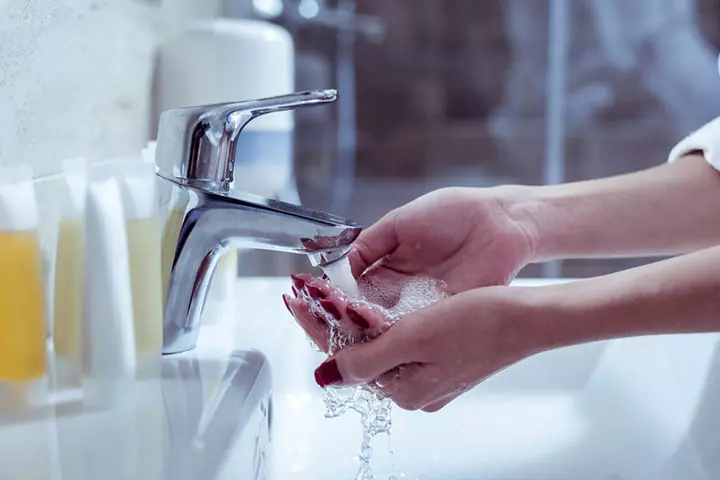
Image: Shutterstock
- Get the appointment in the morning as the parlors are prone to fewer chemical fumes at that time of the day.
With the help of a skilled nail expert and some safety measures, you can make your nails more beautiful. If you are worried about using these artificial nails, then it is good to go natural nail care and avoid any artificial enhancements during pregnancy.
How To Remove Acrylic Nails During Pregnancy?
When removing acrylic nails while pregnant, it’s advisable to adhere to certain guidelines to ensure your and your baby’s safety (4) (5).
- Mindful acetone use: Acetone is a popular solvent in nail polish removers and is often used to remove acrylic nails. Using acetone in modest amounts is generally safe. So, request the nail professionals to reduce the amount of time acetone comes into touch with your nails. It is vital as limited absorption via the skin or lungs during removal is not expected to pose an elevated risk of pregnancy.
- Cautious DIY approach: If you are doing the nail removal yourself, use cotton pads soaked in acetone rather than dipping your hands into a bowl of the solution. This method of application reduces exposure.
- Post-Removal hygiene: Thoroughly wash your hands after nail removal to wash off all the chemical residues.
- Ventilated salon spaces: Keep windows or doors open while the nails are removed. Adequate ventilation and fresh air reduce the possibility of excessive chemical exposure via inhalation.
If you feel like having proper nail care done, then consider shellac style nail treatment as opposed to an acrylic or gel nail treatment. .Shellac is extra durable, long lasting polish that resembles acrylics but is less damaging to your nails and involves no harmful chemicals. Keep in mind however, that exposure and skin absorption to those chemicals is still possible while sitting in a salon. So, be mindful of the air flow and ventilation in your chosen salon.
Frequently Asked Questions
1. Can acrylic nails cause birth defects in my baby?
There is no evidence yet to conclude that acrylic nails may harm the unborn baby. Although the process exposes pregnant women to chemicals, it does not impact the developing baby. Studies have found that most chemical concentrations present in the air in nail salons are below the recommended occupational exposure limits. So they cannot pose any risk to the growing fetus (6).
2. Is the UV light for curing gel nails safe while pregnant?
UV rays and radiation are used to cure gel nails. According to the FDA, exposure to these rays is minimal and is not of much concern to an expecting mother (6). However, the major chemical in the UV light-cured gel nails are methacrylate monomers or MMA. This particular chemical is not safe for pregnant women (4). So, it is best to avoid gel nails as much as possible during pregnancy and instead paint the nail independently at home.
3. Can the fumes from acrylic nails harm me?
The fumes and odors emanating from acrylic nails come from volatile organic compounds that turn into vapors or gases easily. Continuous exposure to these substances has many negative health effects (8). These include eye, nose, and throat irritation, headaches, nausea, liver and kidney damage, and cancer. There’s also dust in the fumes that can cause wheezing and chest tightness. The preservatives in many nail products release formaldehyde, which can be harmful to pregnant and non-pregnant women(9).
Getting acrylic nails when pregnant is safe. However, find a trusted and hygienic salon that uses high-quality and safe personal care products to avoid any complications. Also, make sure not to expose yourself to solvent fumes that could make you nauseous. Ensure to get your nails done in a well-ventilated room to avoid breathing such solvent fumes. You can also consider alternative beauty treatments like shellac-style nail treatment instead of acrylic or gel nail treatment, which doesn’t contain harmful chemicals and is more durable, long-lasting, and less damaging to your nails.
Infographic: Measures For Using Acrylic Nails In Pregnancy
Although you may get acrylic nails while pregnant, it is best to avoid getting them when you are unwell, feel nauseous, or have skin or nail-related ailments. Our infographic discusses additional safety measures for you to consider before getting acrylic nails during pregnancy. Illustration: Momjunction Design Team
Illustration: Is It Safe To Get Acrylic Nails When Pregnant?

Image: Dall·E/MomJunction Design Team
Getting colorful acrylic nails may be quite exciting for most women. With this video, you may explore the best-use products, the salon procedure, care instructions, and the pros and cons of getting your beautiful nails done.
Personal Experience: Source
MomJunction articles include first-hand experiences to provide you with better insights through real-life narratives. Here are the sources of personal accounts referenced in this article.
i. Acrylic nails/nail care while pregnant [I need opinions/comments];https://www.youtube.com/watch?v=FI5Ne-fUYME&feature=youtu.be
References
1. The difference between gel and acrylic nails; Jean Madeline Aveda Institute
2. Health hazards in nail salons – overview; Occupational Safety and Health Administration
3. Working in a nail salon; Mothertobaby.org
4. How to get a safe manicure or pedicure; Cedars-Sinai Medical Center (2018).
5. Nailing Down the Facts: Nail Treatment Safety in Pregnancy;. Mothertobaby.org
6. How to Safely Use Nail Care Products; FDA
7. Which beauty treatments are safe during pregnancy?; NCT.org
8. Volatile Organic Compounds’ Impact on Indoor Air Quality; EPA.gov
9. Taking care of your chemical health and safety in nail bars and salons; HSA.ie
Community Experiences
Join the conversation and become a part of our nurturing community! Share your stories, experiences, and insights to connect with fellow parents.
Read full bio of Rebekkah Traptow
Read full bio of Rebecca Malachi
Read full bio of Swati Patwal
Read full bio of Aneesha Amonz






